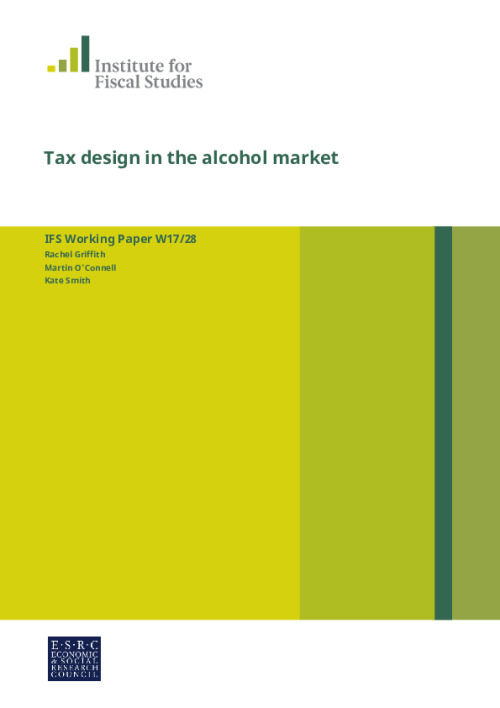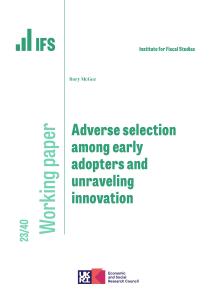Downloads

WP201728.pdf
PDF | 2.09 MB
We study optimal corrective taxation in the alcohol market. Consumption generates negative externalities that are non-linear in the total amount of alcohol consumed. If tastes for products are heterogeneous and correlated with marginal externalities, then varying tax rates on different products can lead to welfare gains. We study this problem in an optimal tax framework and empirically for the UK alcohol market. Welfare gains from optimally varying rates are higher the more concentrated externalities are amongst heavy drinkers. A sufficient statistics approach is informative about the direction of reform, but not about optimal rates when externalities are highly concentrated.
This is an updated version of previous working paper see here.
Authors

CPP Co-Director, IFS Research Director
Rachel is Research Director and Professor at the University of Manchester. She was made a Dame for services to economic policy and education in 2021.

Research Fellow University of Wisconsin
Martin, previously Deputy Research Director, is a Research Fellow at IFS and Professor of Economics at the University of Wisconsin.

Research Fellow London School of Economics
Kate is an IFS Research Fellow and an Assistant Professor at LSE, interested in public finance, industrial organisation and applied microeconomics.
Working Paper details
- DOI
- 10.1920/wp.ifs.2017.W1728
- Publisher
- The IFS
Suggested citation
R, Griffith and M, O'Connell and K, Smith. (2017). Tax design in the alcohol market. London: The IFS. Available at: https://ifs.org.uk/publications/tax-design-alcohol-market (accessed: 30 June 2024).
More from IFS
Understand this issue

Election Special: Your questions answered
27 June 2024

Election Special: The big issues politicians haven't spoken about
25 June 2024

Election Special: The Labour manifesto explained
14 June 2024
Policy analysis

How would the parties’ tax and spending plans affect Scotland and Wales?
28 June 2024

What are the parties’ plans for benefits and taxes?
24 June 2024

Plaid Cymru manifesto: a response
13 June 2024
Academic research

Saving by buying ahead: stockpiling in response to lump-sum payments
2 February 2024

Intertemporal income shifting and the taxation of business owner-managers
24 January 2024

Adverse selection among early adopters and unraveling innovation
18 December 2023